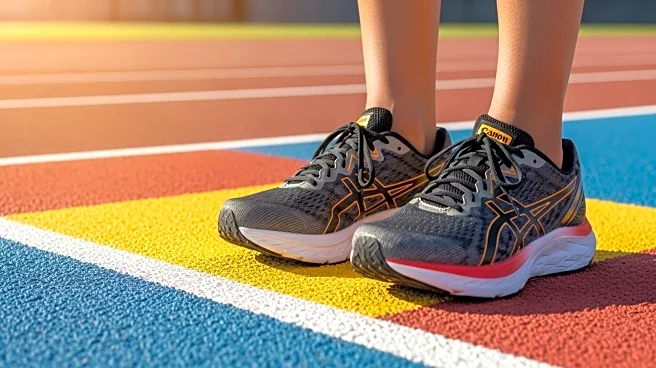What's Happening?
Grandma's Marathon, the largest marathon event in Minnesota, has sold out in record time for its upcoming race next summer. This marks a significant achievement for the event, which has been a staple in the local sports community. The marathon attracts participants from across the country, eager to experience the scenic route and the vibrant atmosphere of the race. The sell-out indicates a growing interest and enthusiasm for the event, highlighting its importance in the regional sports calendar. Organizers are preparing to accommodate the influx of runners and spectators, ensuring a memorable experience for all involved.
Why It's Important?
The rapid sell-out of Grandma's Marathon underscores the increasing popularity of marathon running in the United States, particularly in Minnesota. This event not only boosts local tourism but also contributes significantly to the economy by attracting visitors who spend on accommodations, dining, and other local services. The marathon serves as a platform for promoting health and fitness, encouraging individuals to engage in physical activity. Additionally, it fosters community spirit and pride, as local residents come together to support the event and its participants. The success of the marathon reflects broader trends in sports participation and community engagement.
What's Next?
With the marathon sold out, organizers are focused on logistical preparations to ensure a smooth and successful event. This includes coordinating with local authorities for road closures, safety measures, and crowd management. Participants are expected to begin their training regimens in anticipation of the race, while local businesses prepare to accommodate the influx of visitors. The event may also prompt discussions on expanding capacity or introducing additional events to meet growing demand. Stakeholders, including sponsors and community leaders, will likely explore opportunities to enhance the marathon experience and capitalize on its popularity.
Beyond the Headlines
The sell-out of Grandma's Marathon may inspire other regional events to adopt similar strategies to boost participation and engagement. It highlights the potential for marathons to serve as catalysts for community development and economic growth. The event's success could lead to increased investment in local infrastructure and amenities, benefiting residents and visitors alike. Furthermore, the marathon's popularity may encourage more individuals to take up running, contributing to public health initiatives and fostering a culture of fitness and wellness.










